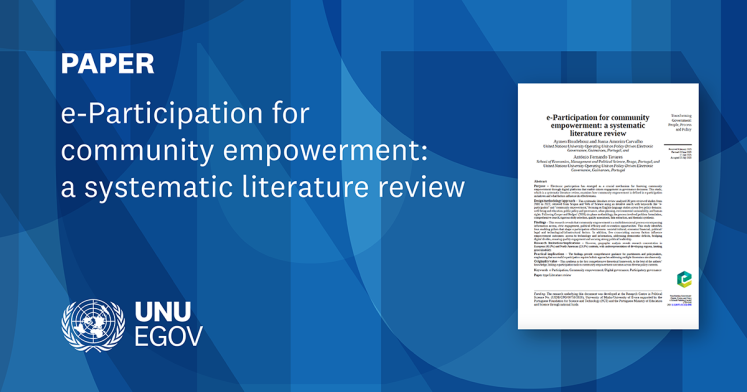A new article entitled “e-Participation for community empowerment: a systematic literature review” has been published in Transforming Government: People, Process and Policy by Emerald Publishing. The study is authored by Aymen Boudebouz, Joana Carvalho and António Tavares, from UNU-EGOV.
The article examines how electronic participation (e-participation) fosters community empowerment through digital platforms that enable citizens to engage in governance processes. Based on a systematic literature review of 30 peer-reviewed studies published between 2000 and 2022, the research analyses initiatives across five policy domains: well-being and education, public policy and governance, urban planning, environmental sustainability, and human rights.
The findings reveal that community empowerment develops through multiple interconnected dimensions: access to information, civic engagement, political efficacy, and opportunities for co-creation. The study identifies four essential pillars that determine e-participation effectiveness: societal and cultural factors, economic and financial resources, political and legal frameworks, and technological infrastructure. Additionally, five critical success factors emerge: ensuring access to technology, bridging digital divides, fostering quality engagement, addressing democratic deficits, and securing strong political leadership.
The authors note that while most studies focus on European and North American contexts, developing regions remain underrepresented, which limits how broadly these findings can be applied globally. Nevertheless, the study provides policymakers and practitioners with a practical framework to design inclusive and effective e-participation initiatives.
The full article is available for download here.



